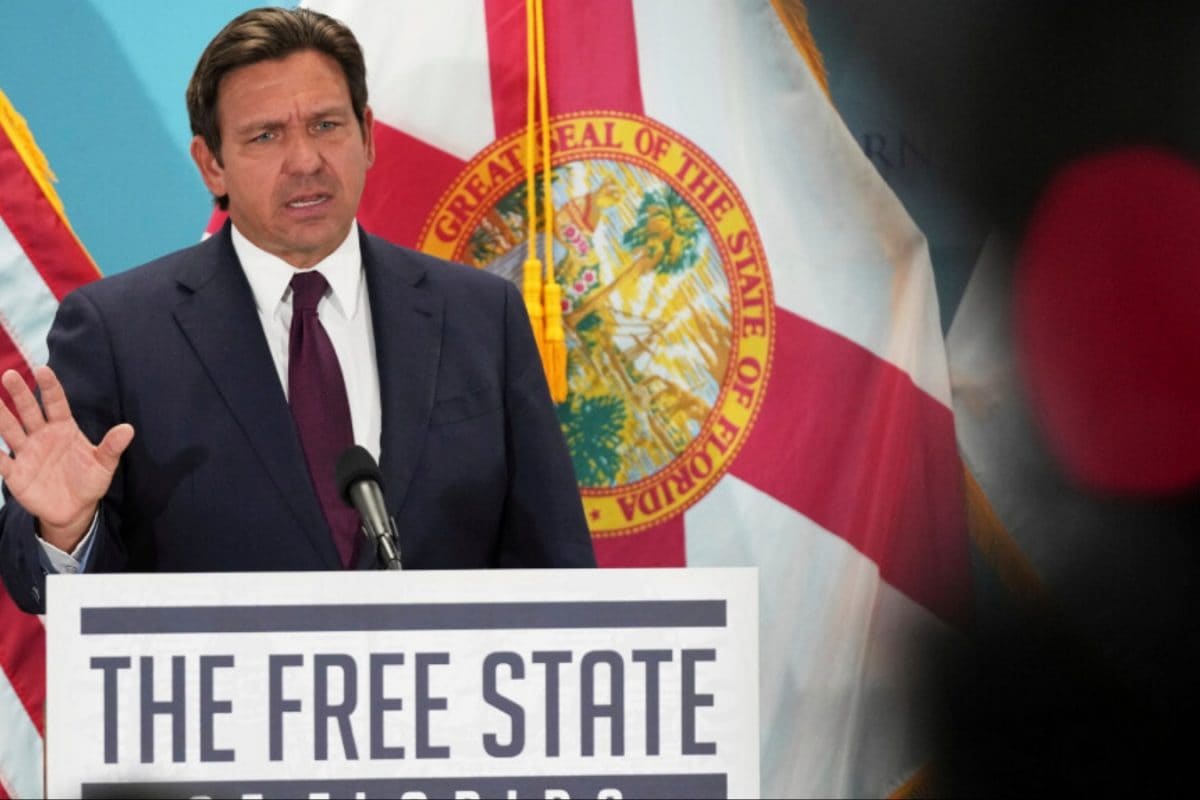

Florida Governor Ron DeSantis has ignited a fresh debate over the H-1B visa program, calling it a "total scam" that primarily benefits Indian workers at the expense of Americans. Speaking on Fox News on Wednesday, DeSantis claimed the program enables companies to replace American workers with cheaper foreign labor, mainly from India. His remarks have resonated with other Republican figures, including US Commerce Secretary Howard Lutnick, who has also voiced strong criticism of the H-1B visa, further intensifying the scrutiny on the program.
DeSantis argued that companies often force American employees to train their H-1B replacements before being laid off. He also highlighted a "cottage industry" where individuals allegedly profit from the system, with most H-1B workers originating from India. He questioned the rationale behind importing foreign workers when artificial intelligence is already displacing young Americans, emphasizing the need to prioritize the interests of American citizens.
These comments come amidst ongoing tariff disputes between the US and India, adding another layer of complexity to the issue. Republican leaders are increasingly vocal against the program and are urging the Donald Trump administration to overhaul it.
Echoing DeSantis' sentiments, Commerce Secretary Howard Lutnick has also labeled the H-1B visa system a "scam". He has indicated that the Trump administration is preparing changes to the immigration system, including the H-1B and green card processes. Lutnick has even suggested a "gold card" plan that would grant residency to foreigners who invest $5 million in the US. He stated that "The current H1B visa system is a scam that lets foreign workers fill American job opportunities" and that hiring American workers should be the priority. Lutnick has also pointed out that the average American worker makes $75,000 a year, while the average green card recipient makes $66,000 a year.
The H-1B visa program allows US companies to employ foreign workers in specialized occupations that require theoretical or technical expertise. The program is particularly utilized by the tech industry, with a significant number of visas going to Indian professionals. The US government usually allocates 65,000 H-1B visas each year, with an additional 20,000 reserved for those with US advanced degrees.
The American Immigration Council, an advocacy group, has defended the H-1B visa program, arguing that immigrant and native-born workers bring different skill sets and complement each other in the labor market. They also assert that immigrant workers contribute to the economy by spending their wages, starting businesses, and fostering innovation.
Past attempts to reform the H-1B visa program have faced legal challenges. The Department of Homeland Security (DHS) proposed allocating H-1B slots based on wage levels during the Trump administration, but federal courts blocked attempts to raise wage floors and restrict qualifying job categories.
Despite criticisms, supporters of the H-1B visa program maintain that it is essential for filling critical gaps in the US labor market, especially in science and technology. They argue that it enables US companies to remain competitive in the global economy by attracting top talent from around the world.